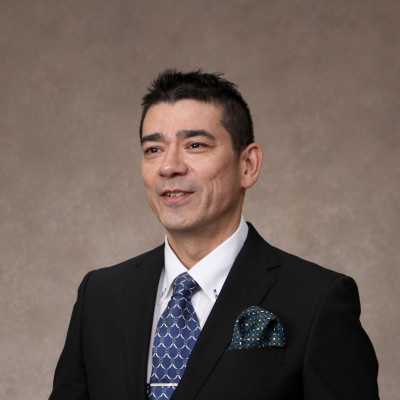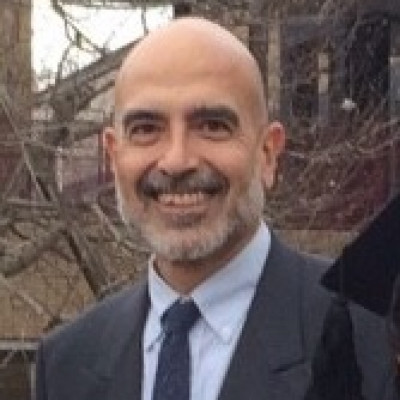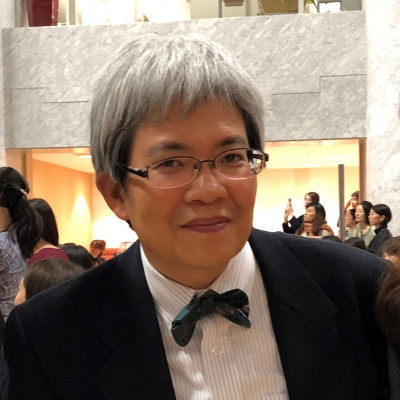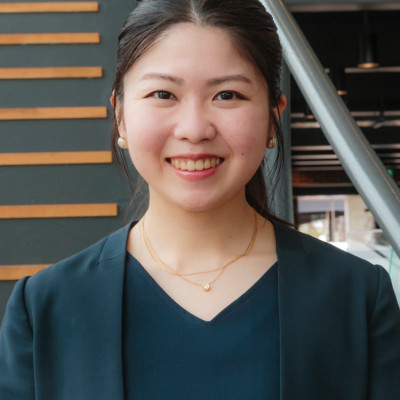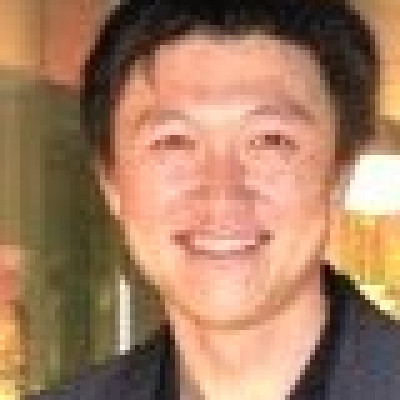Sessions / Location Name: 西 1 207
Physical Location
Location: 西 1 207
Exploring Our Identities in Our Communities #3964
Using community development theories, this learning cafe session would explore members’ roles in their communities. Drawing on my studies in social work and community studies, in addition to teaching in Osaka high schools, at a Tokyo university, and now at a university in Tochigi, I would like to share how my identity in these various communities shifted as my view of community did. Examining ourselves and our communities from different perspectives can affect how we see ourselves and our community interactions. Through prompts such as, “How do I view my community?” to “What is my role in my community?” to “What can I contribute to my community?”, can help us to see our importance and how potentially a shift in our viewpoint can make community interaction more positive. Using this session as an opportunity for sharing and exploration can potentially give learners and teachers more meaning into their interactions in their communities.
Introducing Glocal Issues Education via a Project-Based Learning Approach #3970
Guided by some valuable lessons learned since the launch of a Project Based Learning (PBL) core curriculum at a Japanese university in Spring 2021, this presentation will introduce participants to some of the educational challenges and subsequent benefits that emerged as a result of adopting a university wide PBL approach to Glocal Issues Education.
Compulsory for all first-year students at the university in question, the objective of this new program is to introduce students to a set of practical (and transferable) real-life skills required to actively and successfully take part in the study of current global and local issues through the use of English.
Commencing with the need to create an in-house textbook designed to meet the specific requirements of this new program, participants will also be introduced to a framework that will demonstrate that the use of PBL can provide learners with an interactive, communicative, and effective way to approach Glocal Issues Education.
In sum, this presentation will be of particular interest to college and university level educators who may wish to integrate a PBL approach to the study of current issues within the context of their own English as a Foreign Language (EFL) classroom.
Cambodia: Challenges and Collaborative Projects for Growth & Education #3989
The presenter will outline challenges faced by a national university in rural Cambodia. He will discuss a developmental project that has led to ongoing collaboration with Cambodia's Ministry of Education, Youth and Sport (MOEYS) and a rural university.
He will discuss two future projects. The first involves the development of a local agricultural product to improve its quality and foster entrepreneurial skills among local producers, leading to the creation of a local brand. This project targets include establishing and registering a unique breed, evaluating soil quality, providing guidance on cultivation techniques, standardizing fruit quality, and facilitating brand creation and business planning. The participants will require basic English language skill that are directly applicable to the intended learning and training outcomes. As such, training for the language support staff in the Project Based Learning (PBL) for an English language support program will be one of the key preliminary objects of this project. As a newly established university with few faculty members with advanced degrees, and research cooperation is essential to train young faculty members.
The second project aims to empower local youth with computer, entrepreneurial, marketing, and English language communication skills to create sustainable local economic opportunities through tourism. This will necessarily include the development of an independent PBL framework and peer learning network with student groups and the community cooperative to ensure English that insufficient language competency does not become a barrier to the project goals. By partnering with a local university and leveraging their expertise, this initiative seeks to mitigate youth migration to Phnom Penh and the Cambodian-Thai border, where exploitation is prevalent.
Finally, an open discussion will seek input and expertise from attendees, with the aim of fostering potential collaborations among interested participants.
SDGs: Community learning in Okayama and the Setouchi region #3990
This presentation will describe a course called ‘Community learning in Okayama and the Setouchi region’ that took place from April to July in 2023. It is one of several courses that make up a new international SDG master’s program at Okayama University. The students on the course are from Laos, Taiwan and Thailand.
The course was divided into two parts. In the first half the presenter coordinated weekly teacher- and student-chosen readings and online discussion in English about the SDGs. In the second half, the class visited three organizations in the Okayama area that foreground the promotion of SDG related activities in their business models. These three organizations were a garbage recycling company, a wild animal fur and leather company, and a bamboo furniture company.
After each discussion lesson and each site visit students submitted a one-page reflection on what they had learned (nine short reports in total) and submitted a 1,000-word report describing a problem and solution connected to their home countries.
This presentation will briefly describe the course, discuss its successes and challenges, and make suggestions for the future. This information should be useful for any teacher wishing to include community learning in their courses.
A Collaborative Case Study Approach to Japanese Social Issues #3960
With the Japanese government’s decade-long initiative to cultivate global human resources, foreign language proficiency and Cultural Intelligence (CQ) remain essential goals in EFL classrooms. Collaborative case studies conducted at the group level have the potential to provide students with the opportunity to delve deep into content and target specific language learning goals. Third-year students in a CLIL class completed various case studies connected to Japanese social issues to increase their knowledge and empathy of their home culture as a basis for improving intercultural competence. Through this approach, students also improved some advanced communicative goals while engaging critically with the content.
The case studies outlined in this presentation have been designed and implemented to prepare students for potential future international work environments, meet specific linguistic benchmarks, and fulfil curriculum requirements. Over a semester-long seminar-type class, students undertook specially tailored case studies that required them to collaborate through researching, problem-solving, planning, and negotiating.
This presentation will outline the rationale for collaborative case studies and how they were designed and implemented. This approach was used over four academic years to gauge if a greater understanding of one’s home culture improves cultural intelligence and sensitivity. The presenter will offer observations on the effectiveness of this approach.
Curious about Curiosity: Exploring Connections Collaboratively #3935
This session aims to stimulate ideas on ways to bring Curiosity to the core of learning, especially the idea of curiosity as wanting to connect, as well as wanting to know. The session will start with an introduction to Curiosity Studies (Zurn & Bassett, 2022; Zurn & Shankar, 2020), including styles of curiosity, curiosity as edgework, and the importance of curiosity to the process of education. We will also introduce Carse’s (1986) notion of infinite vs finite games, and attempt to connect it to Curiosity and Education. The middle part of the session will have small groups of participants going on 20-minute Curiosity Walks within the campus with a conundrum to explore. Two examples are “Using the idea of Edgework in your teaching / learning” and “Curious about Change and Action”. The final part of the session will be the sharing of these ideas with the aim of building connections.
Encouraging students to recognize and express their positionality #3966
I have long tried to encourage students to 'come out' and express their positionality, which are their worldviews and positions they adopt about their research in relation to their social content (Robinson and Wilson). I have been long interested in raising students’ awareness of their positionalities. This interest stems from my background as a person of color from an English L1 context whose socio-economic background jars with the current educational context (a private women's university) where I work. Years ago, I tried to coax my seminar students to confront their socio-economic capital and social class with definitions of social identities, but their lack of response left me dissatisfied. This year I have attempted to raise awareness of students' positionality with several activities/exercises. This session will be structured with a number of mini-sessions with these activities, aimed at generating ideas and insights to encourage students to reflect and express their positionality and social identities, Also, this session will explore how students can express themselves in their position statements and graduation theses. More than finding success, I hope together, we can reflect on these proactive teacher efforts. The merits/demerits of these activities in Japan's risk-adverse society will also be considered.
Empirical research on ChatGPT: from students to the faculty #3973
Since Generative AI, such as ChatGPT, came out, many institutions have had to consider policies regarding how to deal with this new technology in both business and education settings. Additionally, in July 2023, the Japanese government (MEXT) asked all universities to state their supervision policies. For this reason, university educators started taking actions to better understand the effective use of Generative AI and the possible issues through conferences and faculty development activities. In this empirical research, we (one of us teaches English and Intercultural Studies, and the other teaches Computer Literacy) aimed to investigate students’ previous knowledge of Generative AI and their perception of it after introducing ChatGPT in class. Over 200 students participated in this research, and the resulting data will be used to support our students in their learning with ChatGPT, as well as assist faculty members in examining their supervision for the future. This presentation will share steps for conducting this research, the results, and implications.
Academic Writing: Help Learners See Its Value and Resist chatGPT Temptation #3991
With the conference goal of "how to encourage learners to engage in their learning to make a difference in their lives, their local communities, and beyond," how to engage normally disengaged students will be presented. Academic writing, whether as a stand-alone class or as required assignments in subject classes, is dreaded by many university students. It is perhaps the underlying reason many students are tempted to plagiarize and more recently use AI-assistance, like chatGPT, to help complete their writing tasks. Techniques will be presented that can help students realize the value of learning to write effectively. Also to be presented are activities to develop students' metacognition of themselves as students, such as their attitude towards studying and their behaviors that result in stress and low performance. Through such attitude adjustments and self-awareness raising, students will be better positioned to not only succeed in their studies at university without cutting corners, but to understand how the skills they develop can be applied in areas outside of university.


